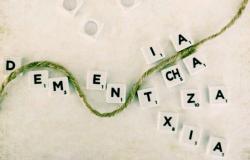“The diagnosis of leading athletes with amyotrophic lateral sclerosis (ALS) at a young age has sparked the uncomfortable idea that higher physical activity may be linked to the development of Charcot disease”, explains Dr Anders Myhre Vaage from Akershus University Hospital (Norway). But his work, published in the journal Neurology on June 26, 2024, suggest that in reality moderate levels of activity would be linked to a reduction in the risks of developing this paralyzing and fatal neurodegenerative disease in men.
Charcot disease and physical activity: a link observed only in men
To determine the link between the condition, also known as Lou Gehrig’s disease, and exercise, the researchers followed 373,596 people living in Norway for an average of 27 years. Each volunteer was asked to rate their level of physical activity over the course of a year.
Over the study period, 504 participants developed ALS. 59% were men. Analyzing the data, the team found that male participants who had moderate levels of physical activity had a 29% lower risk of developing the disease compared to those who did little exercise. Men with high levels of physical activity had a 41% lower risk of Lou Gehrig’s disease.
Another finding: Men who had a low resting heart rate (which indicates good physical fitness) had a 32% reduced risk of ALS compared to those with a higher resting heart rate.
ALS: a protective effect of physical exercise?
“Our results show that, for men, not only do moderate to high levels of exercise and good physical fitness not increase the risk of ALS, but they may also protect against the disease.”assures Dr. Anders Myhre Vaage in a press release.
The team adds that further studies will need to be conducted to verify the link between Lou Gehrig’s disease and exercise based on different factors such as the length of the activity period, gender or even in professional athletes who were not part of the sample.






